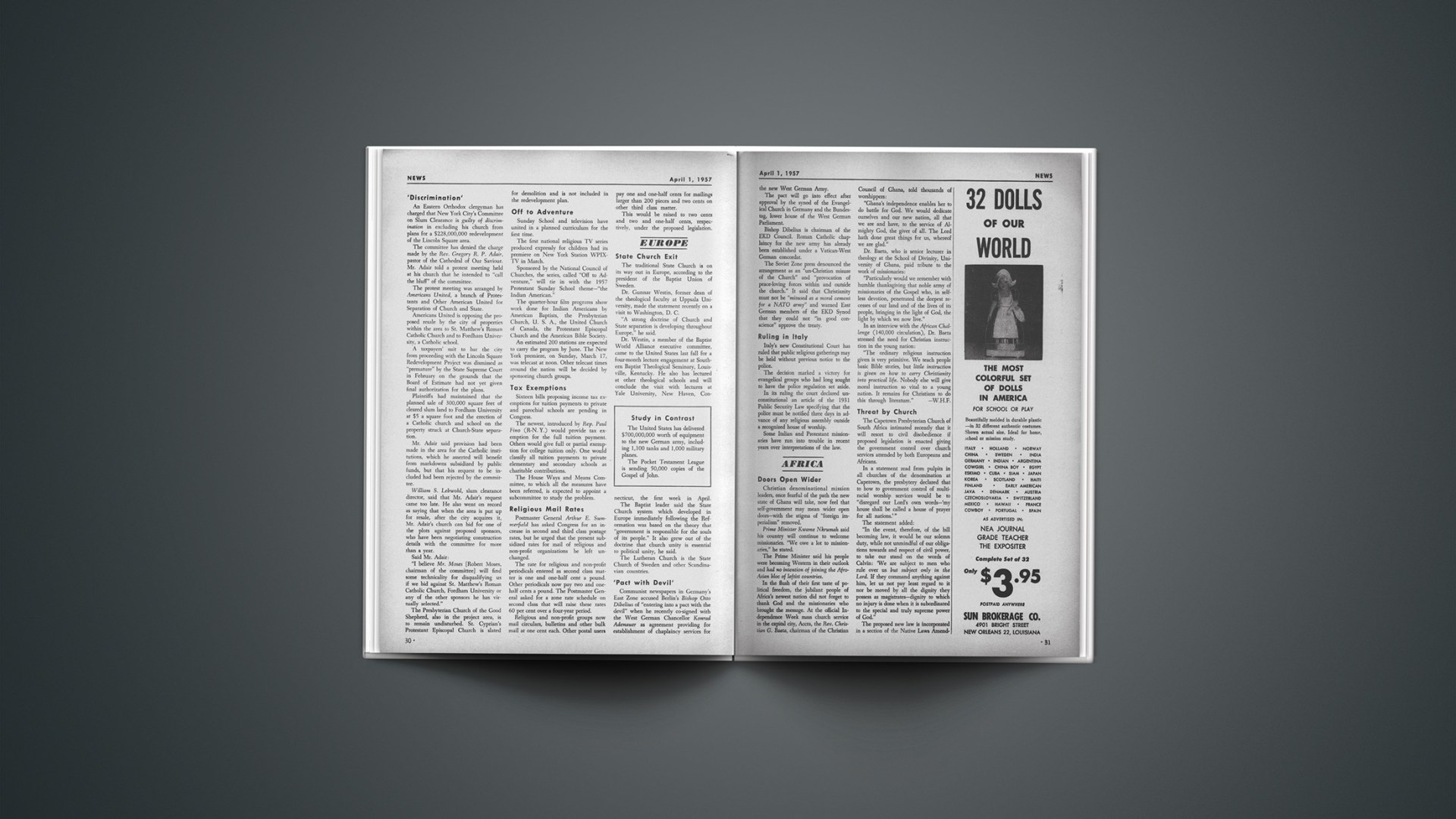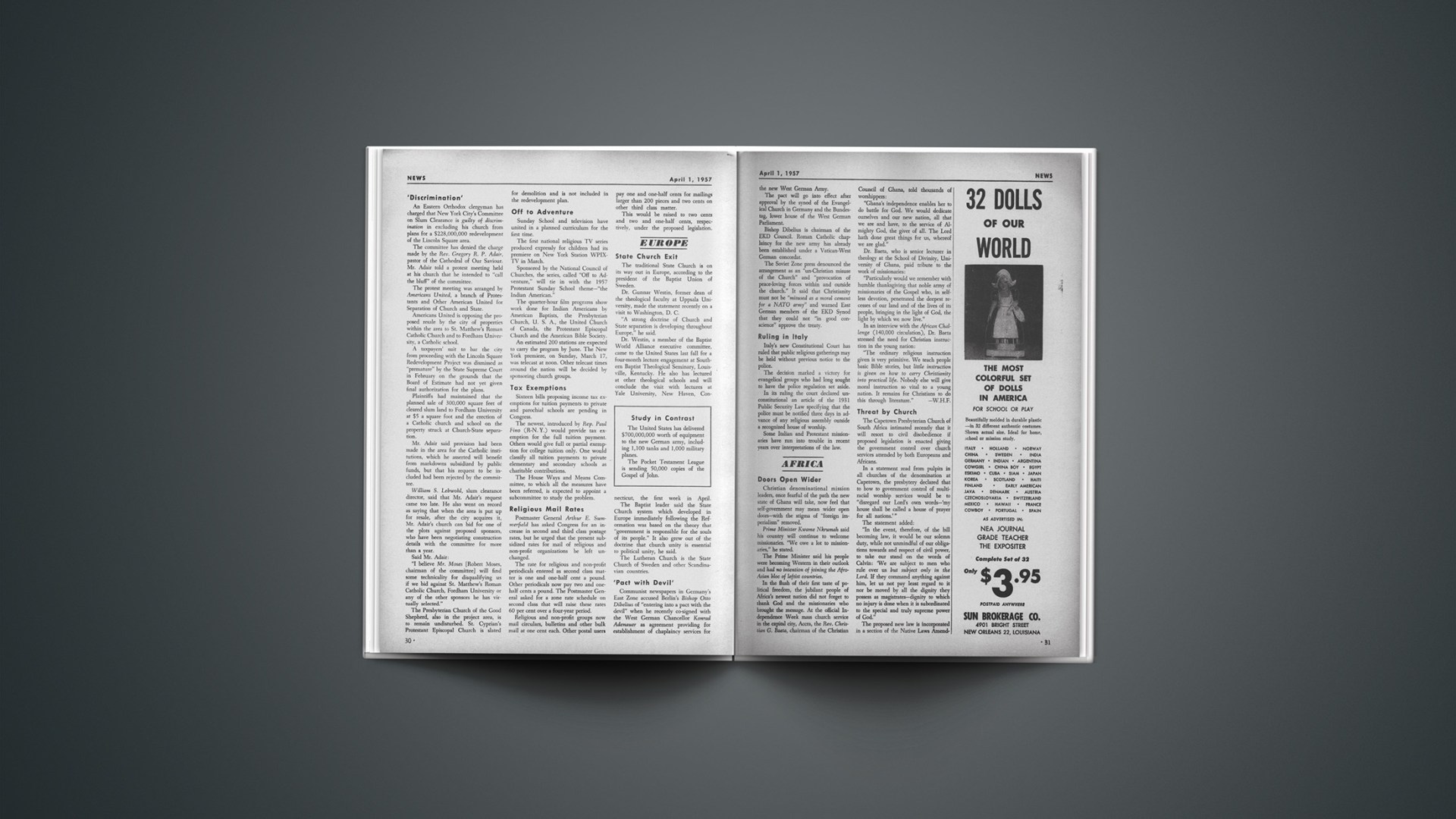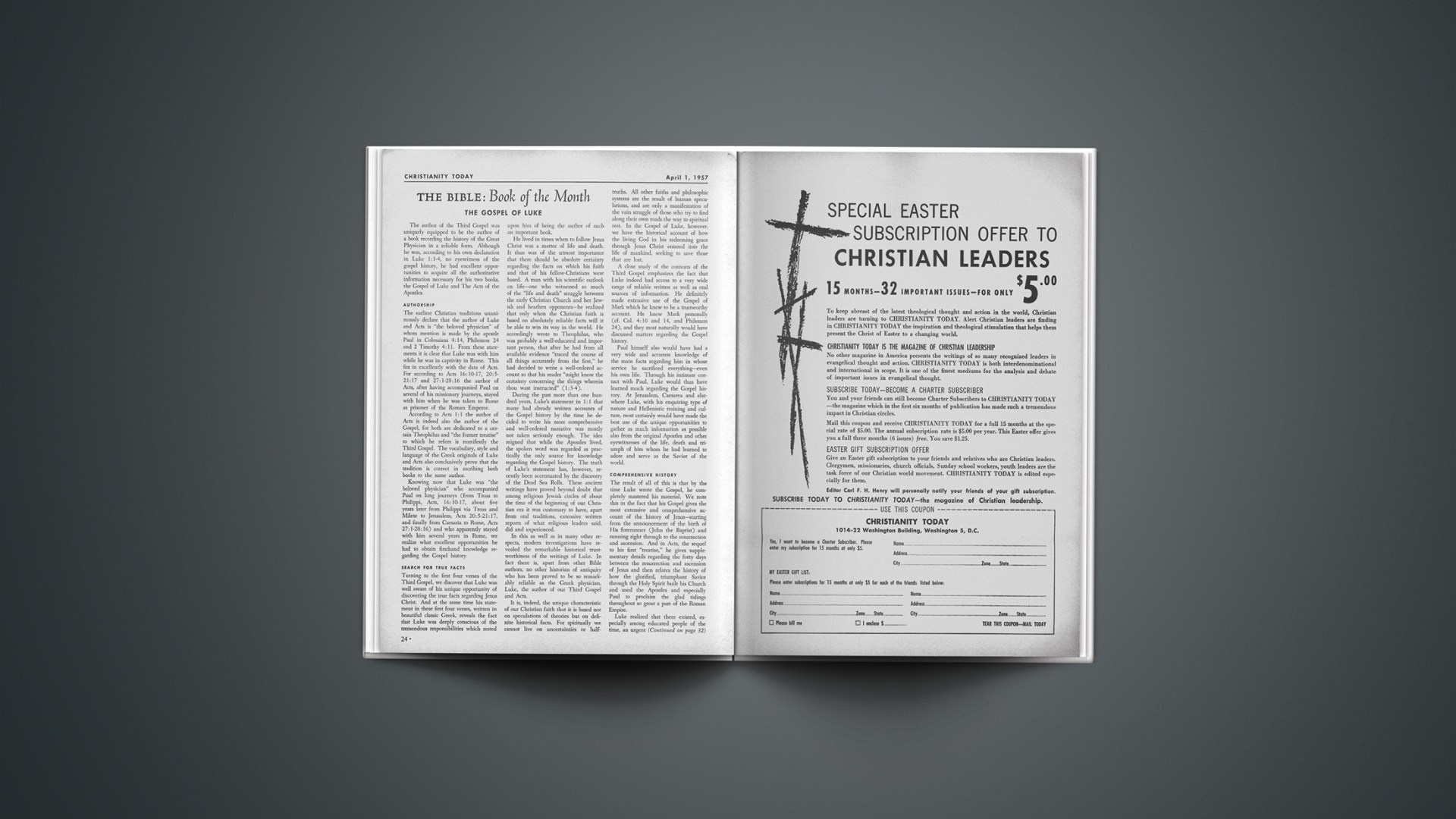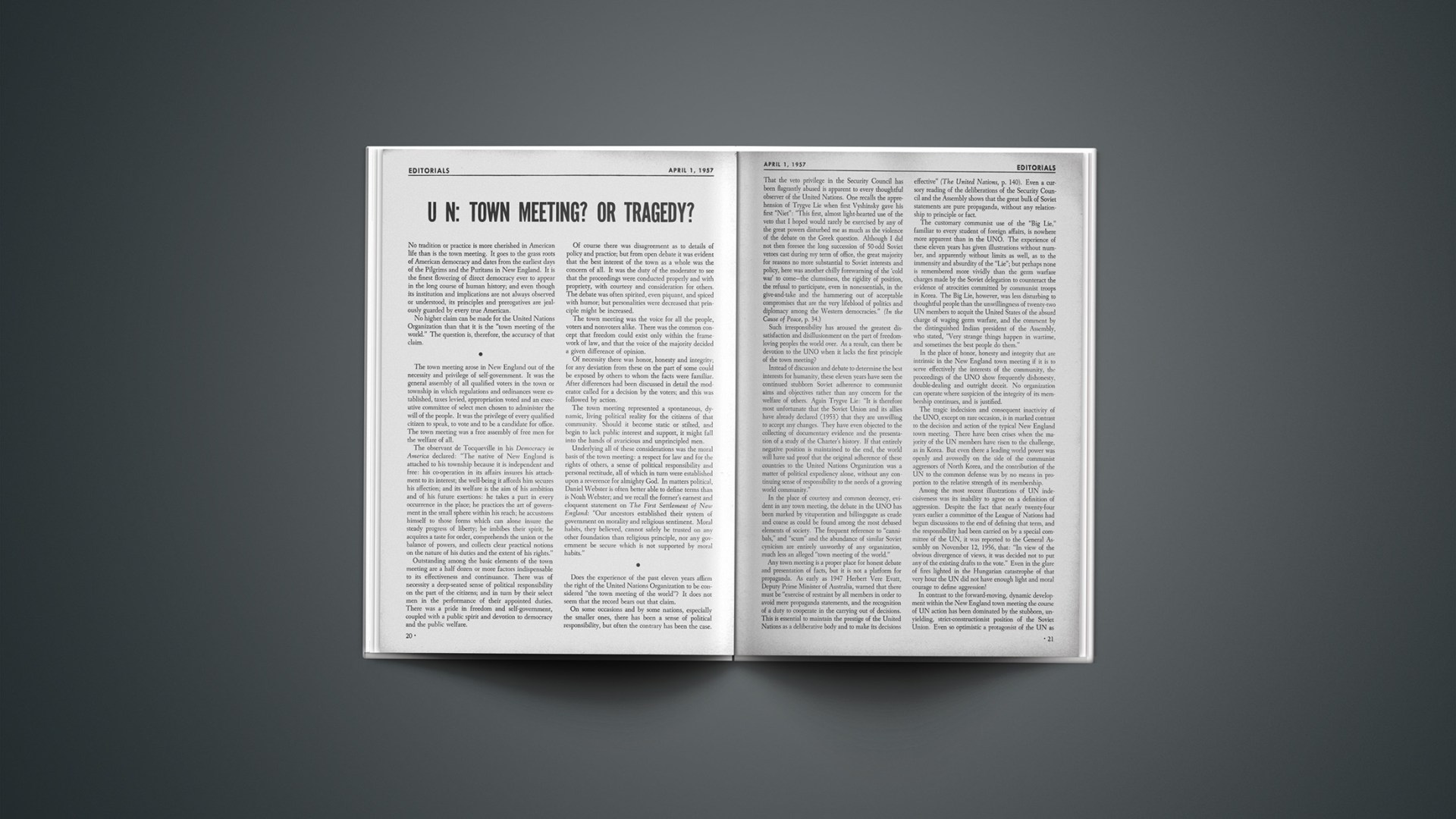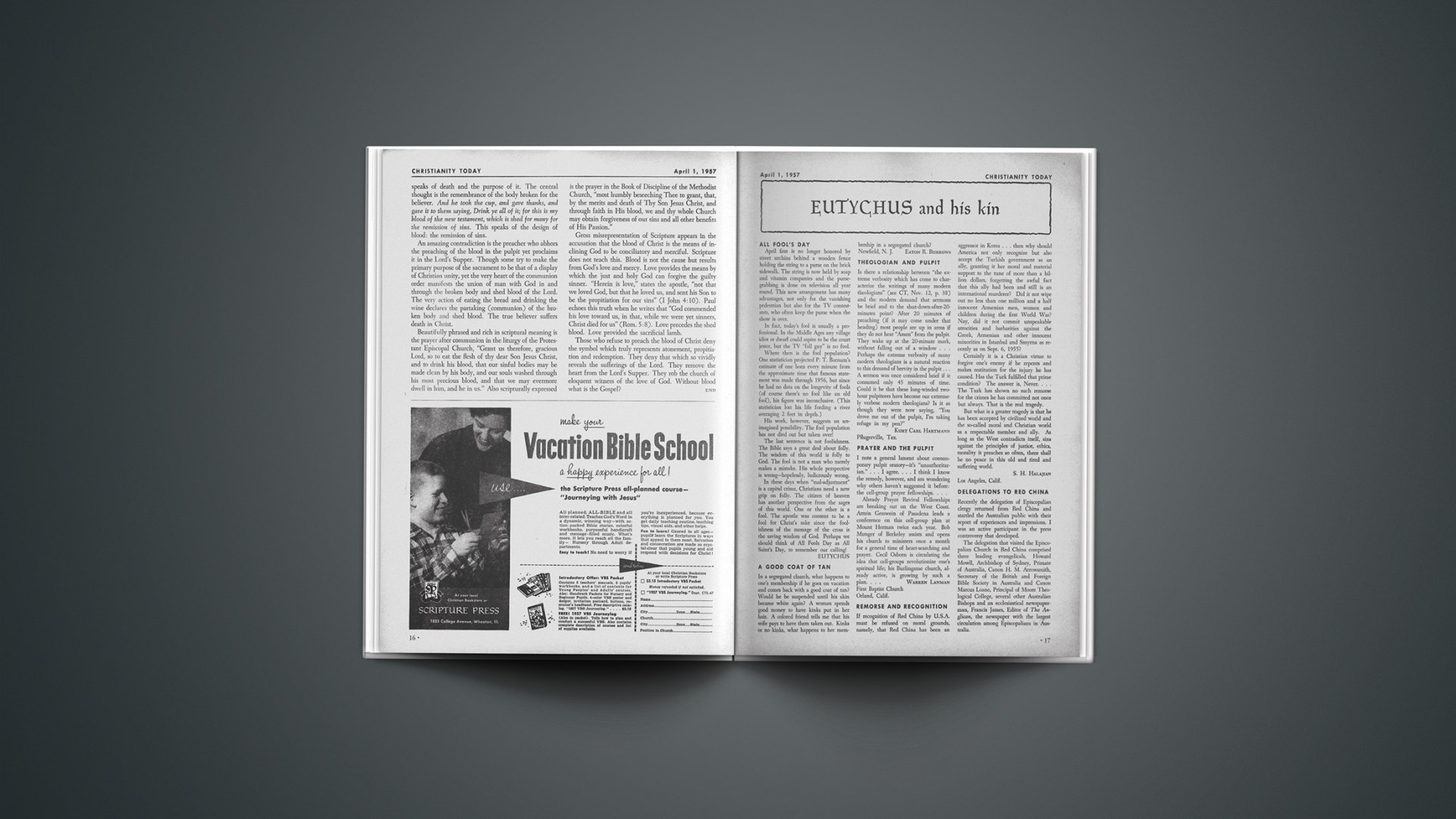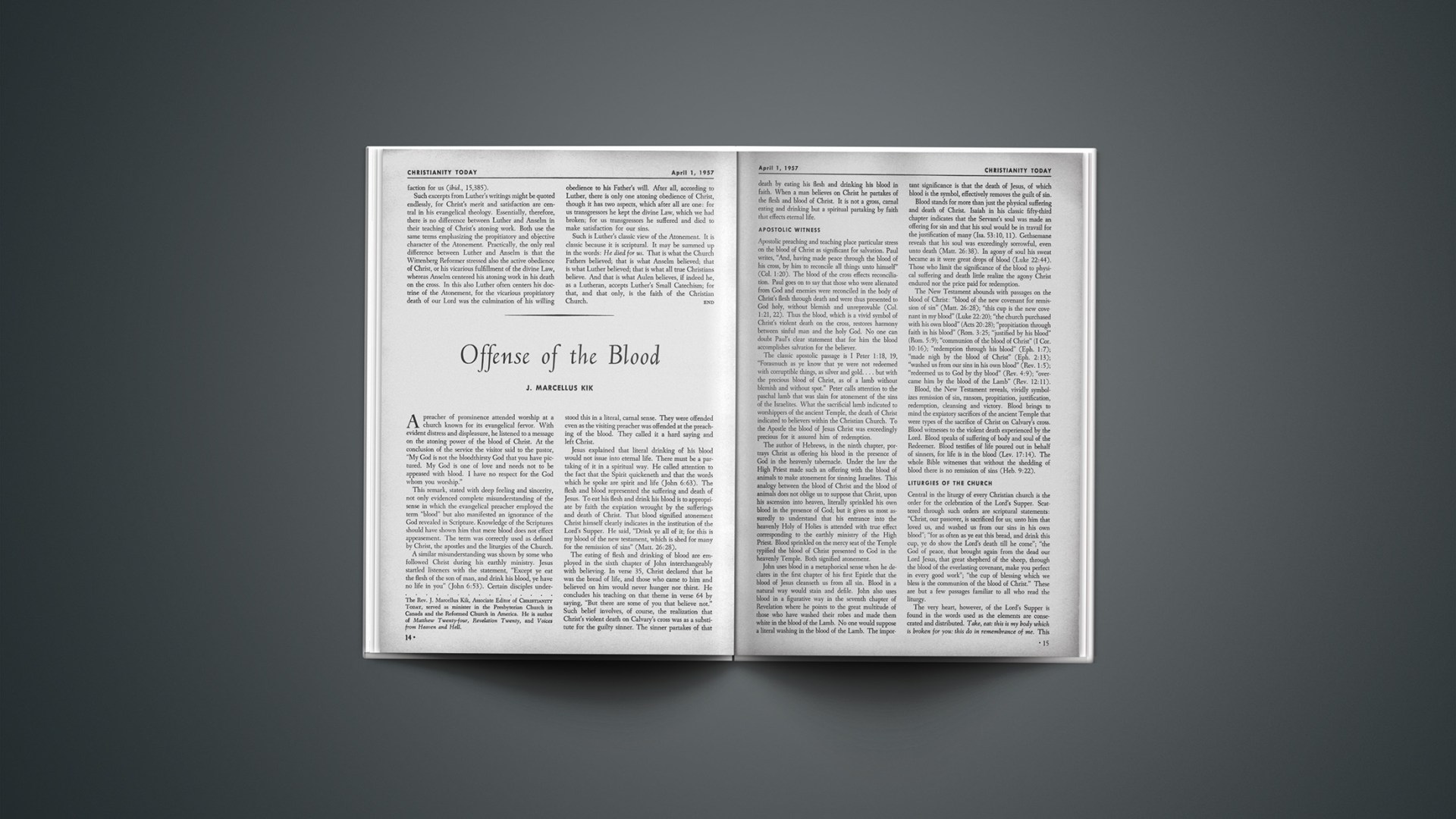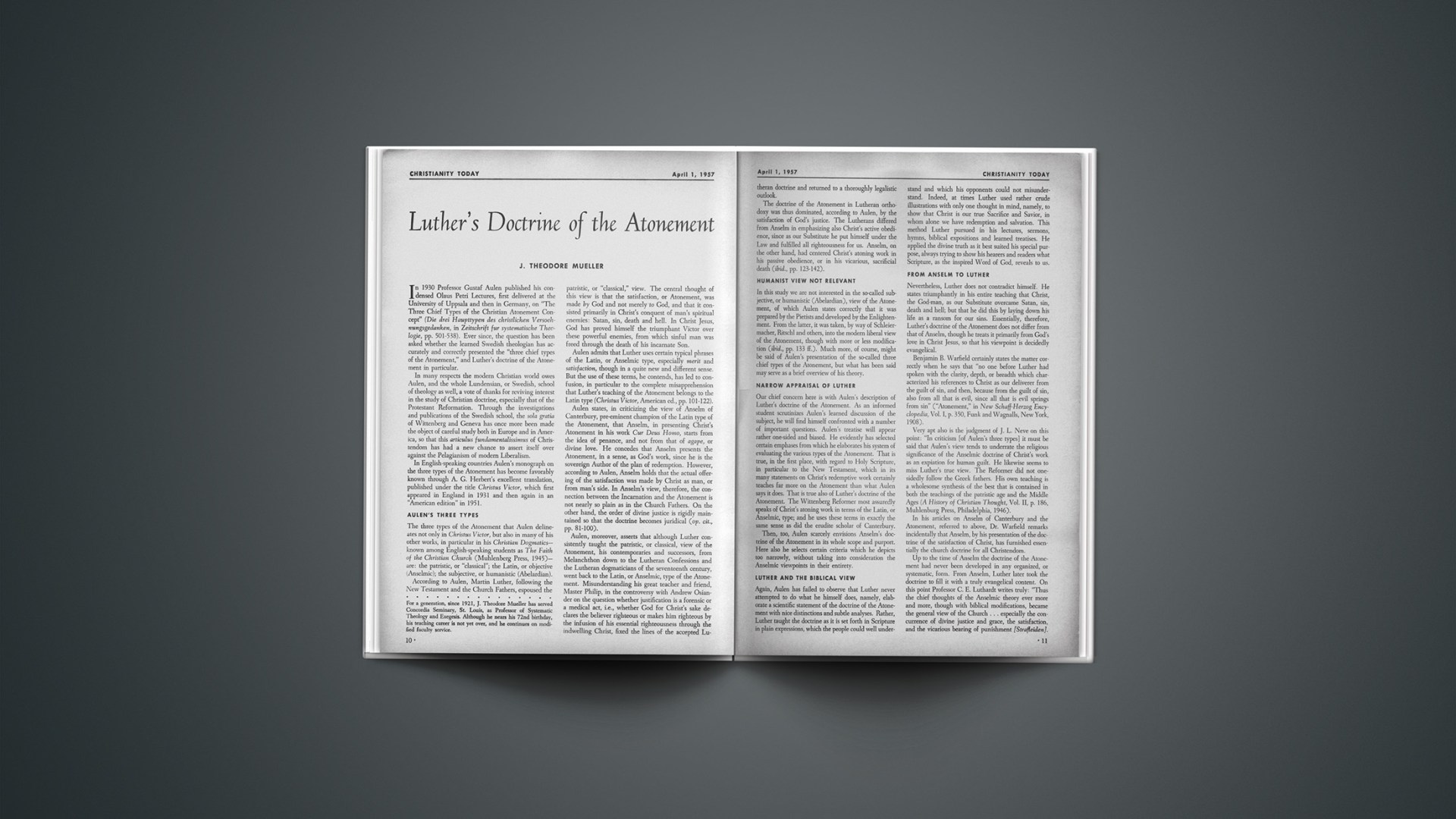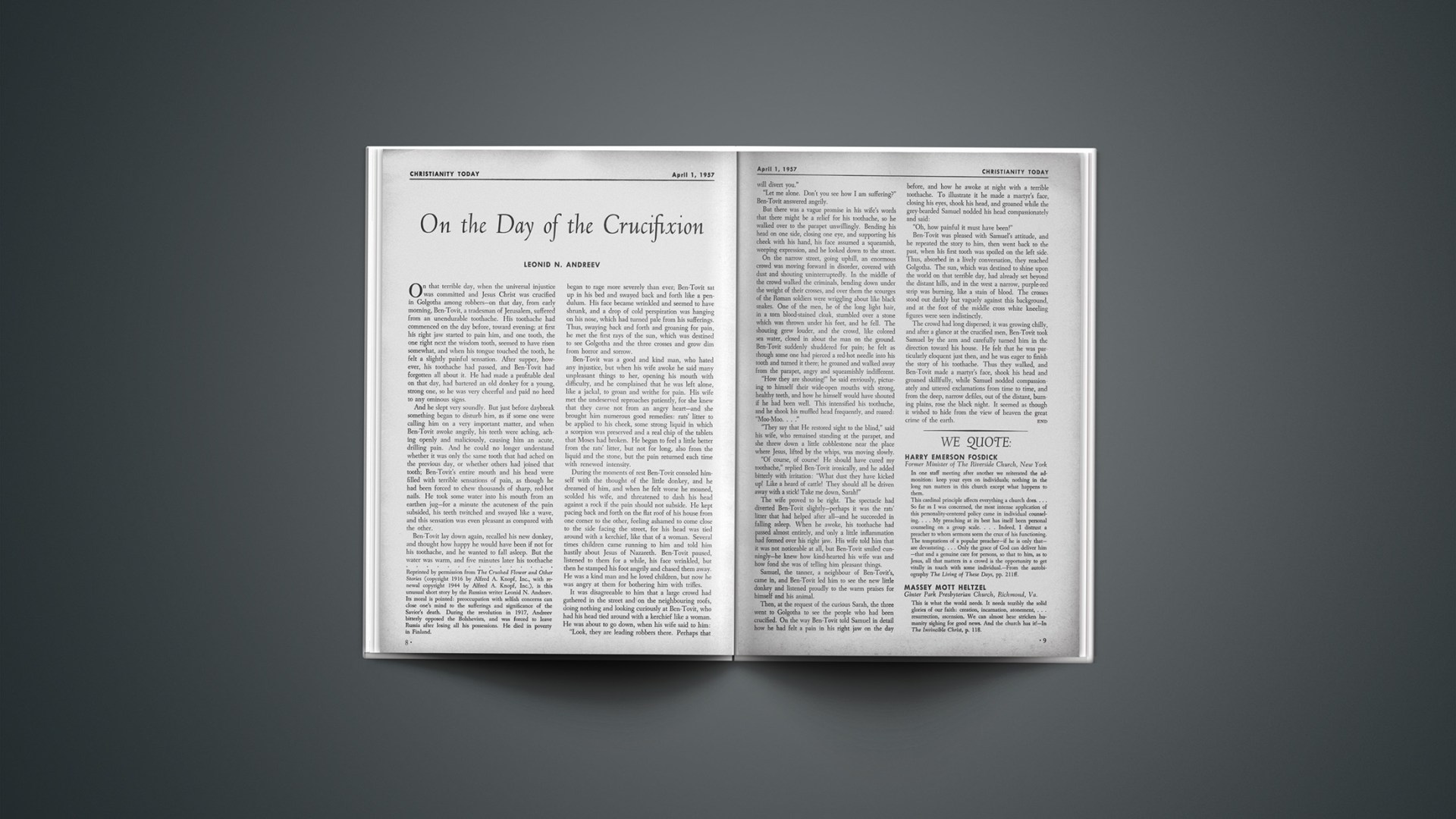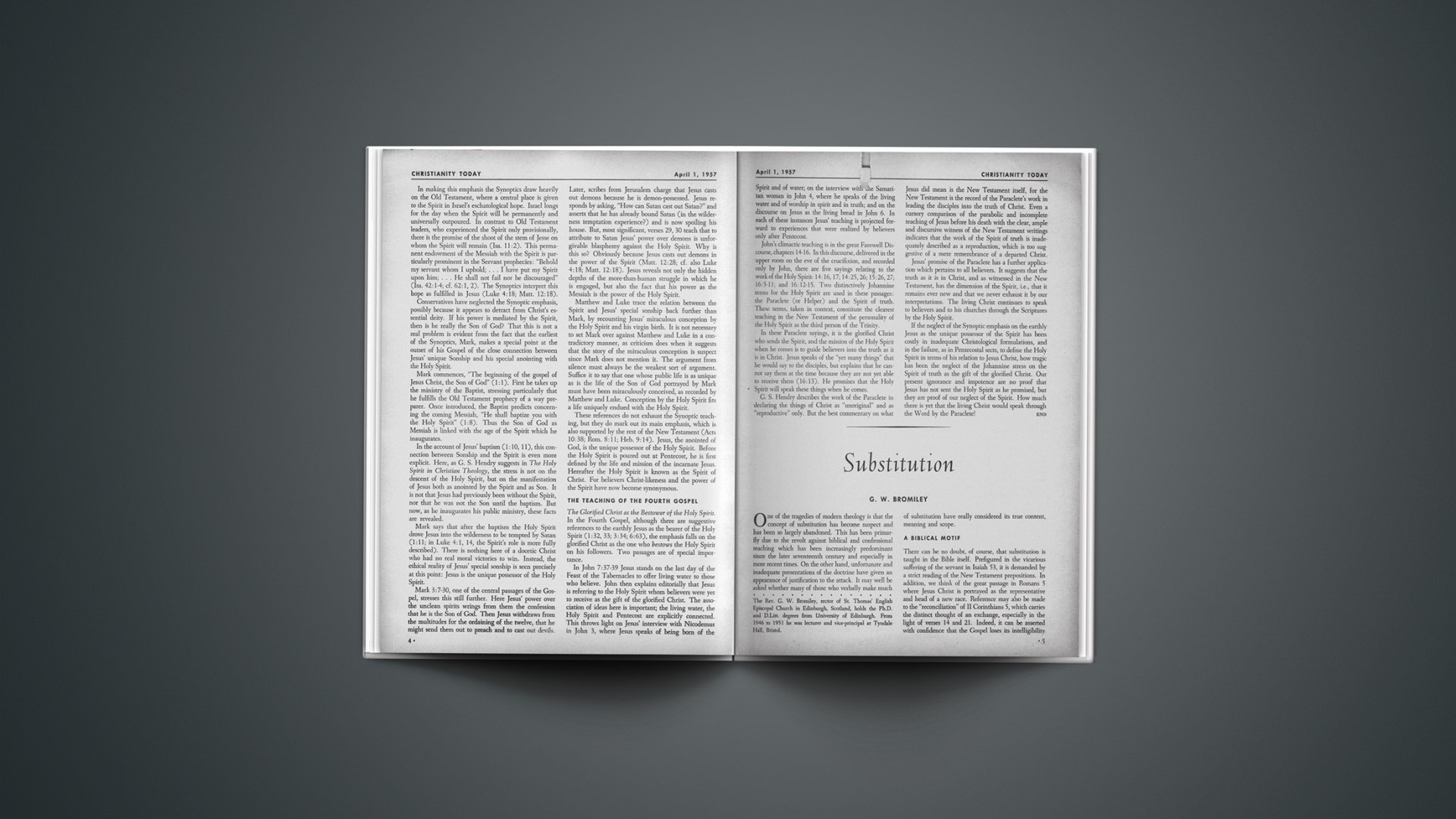Doors Open Wider
Christian denominational mission leaders, once fearful of the path the new state of Ghana will take, now feel that self-government may mean wider open doors—with the stigma of “foreign imperialism” removed.
Prime Minister Kwame Nkrumah said his country will continue to welcome missionaries. “We owe a lot to missionaries,” he stated.
The Prime Minister said his people were becoming Western in their outlook and had no intention of joining the Afro-Asian bloc of leftist countries.
In the flush of their first taste of political freedom, the jubilant people of Africa’s newest nation did not forget to thank God and the missionaries who brought the message. At the official Independence Week mass church service in the capital city, Accra, the Rev. Christian G. Baeta, chairman of the Christian Council of Ghana, told thousands of worshippers:
“Ghana’s independence enables her to do battle for God. We would dedicate ourselves and our new nation, all that we are and have, to the service of Almighty God, the giver of all. The Lord hath done great things for us, whereof we are glad.”
Dr. Baeta, who is senior lecturer in theology at the School of Divinity, University of Ghana, paid tribute to the work of missionaries:
“Particularly would we remember with humble thanksgiving that noble army of missionaries of the Gospel who, in selfless devotion, penetrated the deepest recesses of our land and of the lives of its people, bringing in the light of God, the light by which we now live.”
In an interview with the African Challenge (140,000 circulation), Dr. Baeta stressed the need for Christian instruction in the young nation:
“The ordinary religious instruction given is very primitive. We teach people basic Bible stories, but little instruction is given on how to carry Christianity into practical life. Nobody else will give moral instruction so vital to a young nation. It remains for Christians to do this through literature.”
—W.H.F.
Threat By Church
The Capetown Presbyterian Church of South Africa intimated recently that it will resort to civil disobedience if proposed legislation is enacted giving the government control over church services attended by both Europeans and Africans.
In a statement read from pulpits in all churches of the denomination at Capetown, the presbytery declared that to bow to government control of multi-racial worship services would be to “disregard our Lord’s own words—‘my house shall be called a house of prayer for all nations.’ ”
The statement added:
“In the event, therefore, of the bill becoming law, it would be our solemn duty, while not unmindful of our obligations towards and respect of civil power, to take our stand on the words of Calvin: ‘We are subject to men who rule over us but subject only in the Lord. If they command anything against him, let us not pay least regard to it nor be moved by all the dignity they possess as magistrates—dignity to which no injury is done when it is subordinated to the special and truly supreme power of God.”
The proposed new law is incorporated in a section of the Native Laws Amendment Bill. It will require permission from the Minister of Native Affairs, Dr. H. F. Verwoerd, for multi-racial services in churches or other institutions established since 1938. The bill also has been opposed by the Anglican, Roman Catholic, Methodist and Baptist churches and other religious groups.

